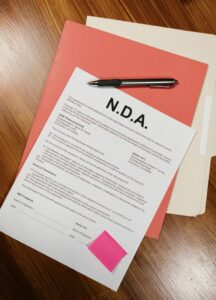Maintaining a healthy cash flow is essential in any business. Yet many companies struggle with overdue payments, which can disrupt financial stability, delay growth, and place unnecessary stress on operations. While collecting unpaid invoices is crucial, it is equally important to do so in a way that preserves client relationships. Aggressive or unprofessional collection methods can result in damaged reputations, loss of future business, or even legal repercussions.
Here are some essential steps to recover overdue payments legally, ethically, and professionally. From implementing best practices and improving your invoicing process to negotiating with clients and utilizing legal enforcement only when necessary, we provide a practical and comprehensive guide for managing debt collection the right way.
1. Understanding the Importance of Professional Debt Collection
Unpaid invoices can quickly become more than a minor annoyance—they can seriously disrupt your business’s cash flow and threaten its financial stability. According to a 2023 QuickBooks survey, 70% of small businesses experienced late payments from clients and encountered major cash flow problems as a result. When you rely on timely payments to cover expenses, make payroll, or reinvest in your operations, outstanding invoices can create mounting pressure.
But how you choose to handle these situations matters. Debt collection is not just about demanding payment—it’s about protecting your business while maintaining professional relationships. When approached with professionalism and tact, debt recovery becomes a chance to reinforce expectations, improve your billing system, and establish clearer communication.
A poorly handled collection effort, on the other hand, can damage your reputation and sever client relationships. Understanding the balance between assertiveness and professionalism is key. By treating debt collection as a structured and respectful process, businesses can recover funds without burning bridges, preserving both their financial health and their brand reputation in the long term.

2. Start with Preventative Measures
The most effective debt collection strategy starts long before an invoice goes unpaid. Prevention through proactive measures minimizes the risk of late payments and improves your business’s overall financial health. It begins with clarity—setting expectations early, communicating terms clearly, and using efficient systems to support the payment process.
Establishing detailed and transparent payment terms in every contract is a foundational step. Clearly state when payment is due, what late fees or interest will be applied, accepted payment methods, and who to contact for billing issues. Clients should never be unclear about your expectations or how to fulfill them.
Additionally, make sure invoices are accurate, easy to read, and delivered promptly. A delay in invoicing often leads to a delay in payment. Include supporting documents and send the invoice to the correct contact person to avoid confusion or misplacement.
Finally, consider using invoicing software like QuickBooks, Zoho, or FreshBooks. These tools automate reminders, track payment status, and significantly reduce human error. When your invoicing process is smooth and professional, clients are more likely to respond promptly, saving you the hassle of collections later on.

3. Early-Stage Follow-Up: Gentle Reminders
When a payment is overdue, your initial follow-up is critical—it sets the tone for the rest of the collection process. A gentle, professional reminder often resolves the issue without straining your relationship with the client. Start with a courteous email that includes a copy of the original invoice, reference number, amount due, and any applicable late fees. Be polite and assume the best: the delay may simply be an oversight.
If you don’t hear back from them within a few days, follow up with a phone call. Keep the tone friendly and collaborative: confirm the invoice was received and ask if they need any additional documentation. Avoid accusatory language. Instead of saying, “Why haven’t you paid?” You might ask, “Do you have everything you need to move forward with payment?” This approach helps preserve the relationship while gently encouraging prompt action.
4. Structured Collection Process
A consistent and well-documented approach to collections ensures fairness, reduces confusion, and improves your chances of recovering payment. Having a structured internal debt collection policy allows your team to follow the same process with every client, maintaining professionalism and avoiding delays. This process typically involves a timeline with escalating actions based on how overdue the invoice is.
Suggested Timeline:
- Day 1–30:Issue invoice with due date and send automated reminders.
- Day 31–45:Send a polite email reminder and follow up with a phone call.
- Day 46–60: Send a formal collection letter.
- Day 61+: Consider offering a payment plan, referring the account to a collection agency, or seeking legal advice.
A formal collection letter should restate the amount due, the original due date, and a summary of your previous contact attempts. Also, explain any consequences for non-payment, such as late fees, interest, or suspension of services. Keep the tone respectful but firm. Documentation at every step helps protect your business and supports legal claims if needed.

5. Negotiation Tactics: Balancing Firmness and Flexibility
Sometimes, unpaid invoices aren’t due to negligence or unwillingness to pay. Clients may be facing financial hardship or unexpected setbacks. In such situations, approaching the conversation with empathy and flexibility can lead to better outcomes than hardline demands. A willingness to negotiate doesn’t mean being weak; it means being smart.
Offering a payment plan is one way to support the client while protecting your cash flow. Breaking the amount into manageable installments often results in full payment over time, especially if the client is cooperative.
You might also offer a small discount for immediate payment—this can be a compelling incentive to settle quickly. For instance, a 10% discount, if paid within five business days shows goodwill and may speed up resolution.
Above all, use collaborative, “win-win” language. Avoid sounding confrontational or issuing ultimatums. Phrases like “Let’s find a solution together” encourage open dialogue. Showing you’re willing to work with them can preserve the relationship while recovering the funds owed.

6. Maintain Professionalism in All Communications
No matter how long a payment remains overdue, it’s essential to stay calm, professional, and courteous in every interaction. Debt collection can be frustrating, especially when communication stalls or clients become evasive. But reacting emotionally or aggressively can backfire, damaging your reputation and potentially leading to legal complications.
Always document all communications related to the debt, whether by email, phone, or in writing. Keeping a paper trail protects you legally and demonstrates professionalism if the situation escalates. Be concise and stick to the facts: reference invoice numbers, dates, and previous attempts to resolve the issue.
Avoid language that could be interpreted as threatening or harassing. This includes repeated calls, overly aggressive tone, or demands without context. Instead, focus on clear, respectful messaging that emphasizes cooperation.
Professionalism doesn’t mean weakness—it means protecting your credibility, brand, and future business opportunities. Even if payment is never recovered, you’ll have handled the situation with integrity and set a high standard for how your business manages its finances.

7. When to Escalate: Using Third Parties
If repeated reminders and negotiation efforts fail, escalating to a third party might be the necessary next step. This move should be handled with care, as it can impact client relationships, but in some cases, it’s the most effective way to recover overdue payments. One common approach is to hire a reputable debt collection agency. These professionals specialize in pursuing delinquent accounts and can often achieve results when in-house efforts have stalled. Most agencies work on a contingency basis, charging a percentage, typically 25% to 50%, of the amount recovered. Always notify the client in advance before involving an agency; this warning alone may prompt payment.
Another option is mediation services. If the payment delay stems from a dispute over services or pricing, a neutral third-party mediator can facilitate a resolution without the need for court proceedings. Mediation can be especially helpful for preserving business relationships and avoiding legal costs. Whether using an agency or mediator, always document all steps and maintain a professional tone throughout the process.

8. Legal Enforcement Options
When all other efforts have failed, legal action may be the only remaining option to recover an unpaid debt. This step should be taken cautiously, as it can be time-consuming, costly, and may permanently sever your relationship with the client. For smaller amounts, usually between $5,000 and $10,000, depending on your jurisdiction, small claims court can be a viable and cost-effective solution. These proceedings are typically faster, and you usually don’t need to hire a business lawyer.
For more substantial debts or complex cases, filing a civil lawsuit for breach of contract may be appropriate. You’ll need to present documentation, including a signed agreement, detailed invoices, and records of your collection attempts. Legal representation is advised in these instances to ensure your case is properly handled.
Depending on your industry, you may also consider legal remedies such as property liens or court judgments. A lien can prevent a property sale until the debt is paid, while a court judgment can allow wage garnishment or account levies. Always consult with a legal professional before taking this step.

9. Know the Legal Limits of Debt Collection
Regardless of whether your debt collection is handled internally or through a third-party agency, it’s essential to comply with all applicable laws. Violating debt collection laws can lead to penalties and damage your company’s reputation. One key law to be aware of is the Fair Debt Collection Practices Act (FDCPA). Although primarily aimed at consumer debts, many businesses follow its guidelines as a best practice. Under the FDCPA, collectors are prohibited from using abusive language, calling outside the hours of 8 AM to 9 PM, making false statements, or publicly disclosing debts.
In addition to federal law, state-specific regulations may also apply, and some are more restrictive. For example, states may impose shorter statutes of limitations or require licensing for commercial debt collection. It’s crucial to understand the legal framework in your jurisdiction before pursuing any aggressive collection actions. Consulting a legal professional or compliance expert can help ensure your collection process remains lawful and professional, protecting both your business and your client relationships.

10. Preserving Relationships for Future Business
Just because a client has missed a payment doesn’t mean the relationship is beyond repair. In fact, the way you handle the debt collection process can significantly influence whether that client returns for future business. Maintaining professionalism, understanding, and clear communication throughout the process helps preserve goodwill, even in challenging situations.
Once a payment issue is resolved, follow up with a note of appreciation. Thank the client for working with you to find a solution, and express your willingness to continue the partnership. This small gesture can leave a lasting impression and help rebuild trust.
Additionally, take the opportunity to evaluate what went wrong. Was there a communication breakdown? Were the payment terms unclear? Use these insights to improve your systems and prevent similar issues in the future. By treating every case as a learning experience, you can strengthen your internal processes and build more resilient client relationships over time.
11. Partnering with Professionals
When late payments become a recurring issue or start consuming too much of your time, partnering with professionals, especially legal advisors, can offer valuable support. Business lawyers play a crucial role in both preventing and resolving payment disputes. A qualified legal advisor can review and strengthen your contracts, ensuring your payment terms, penalties, and enforcement options are clearly defined and legally binding. This proactive approach helps reduce ambiguity and provides a solid foundation if disputes arise later.
In situations where a client consistently avoids payment, a business lawyer can guide you through the appropriate legal channels, such as sending demand letters or pursuing civil litigation. Their expertise helps ensure that your actions remain compliant with relevant laws and increases your chances of a favorable outcome. Engaging a legal professional early in the process not only enhances your legal protection but also demonstrates to clients that you’re serious about enforcing your agreements.
When dealing with unpaid invoices and complex collection issues, having skilled legal support makes all the difference. Jabaly Law offers comprehensive debt collection services backed by years of experience in business litigation, contract enforcement, and commercial dispute resolution. Whether you need a professional business attorney to recover unpaid invoices or an experienced business lawyer to guide you through litigation, our team is prepared to protect your interests. We take a proactive and strategic approach to legal counsel services for businesses, helping you resolve conflicts while preserving client relationships when possible. From negotiating settlements to filing civil claims, Jabaly Law strives to protect your business at every step.
If you’re seeking reliable, results-driven representation, our law firm in Fairfax VA and Washington, D.C., is ready to support your needs. Contact Jabaly Law for a business law consultation and let our trusted business lawyers and trial attorneys help you recover unpaid invoices.
















